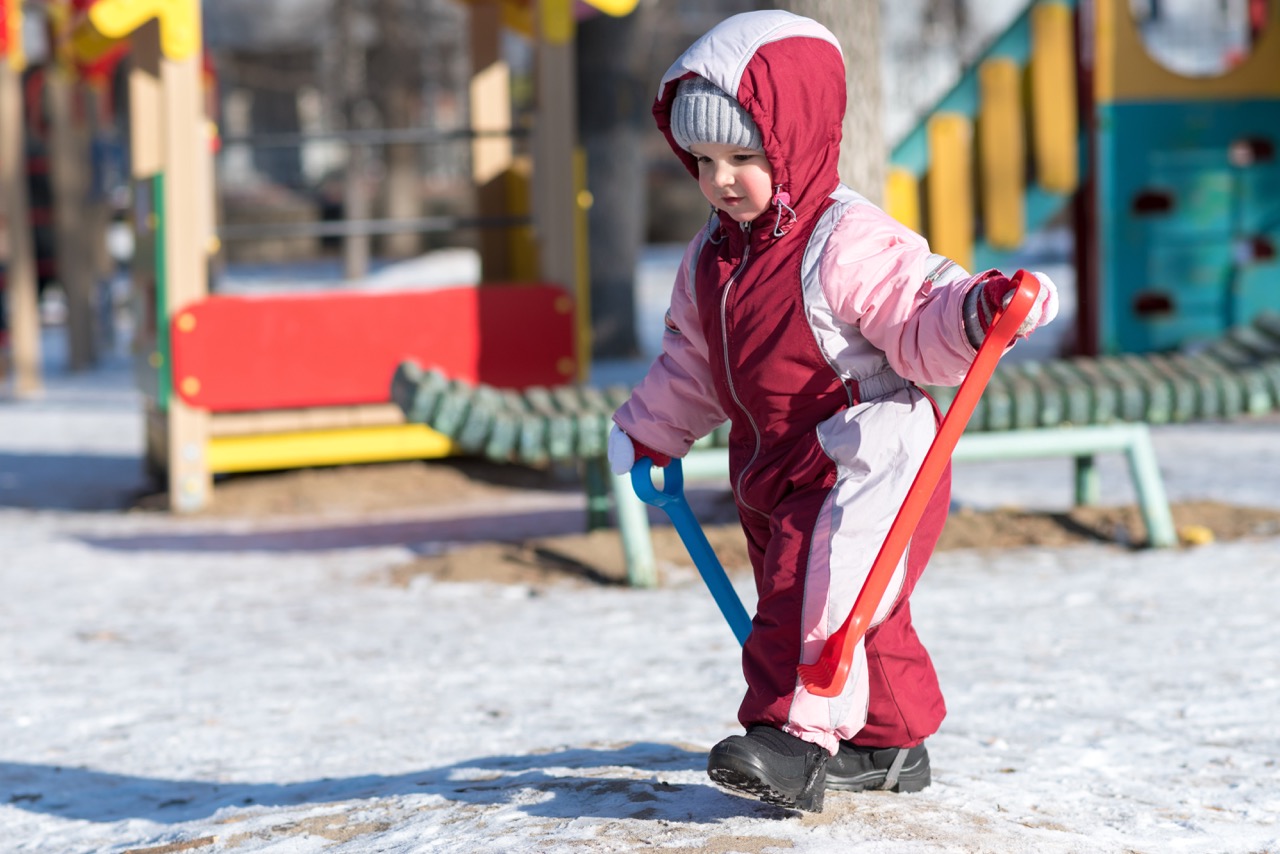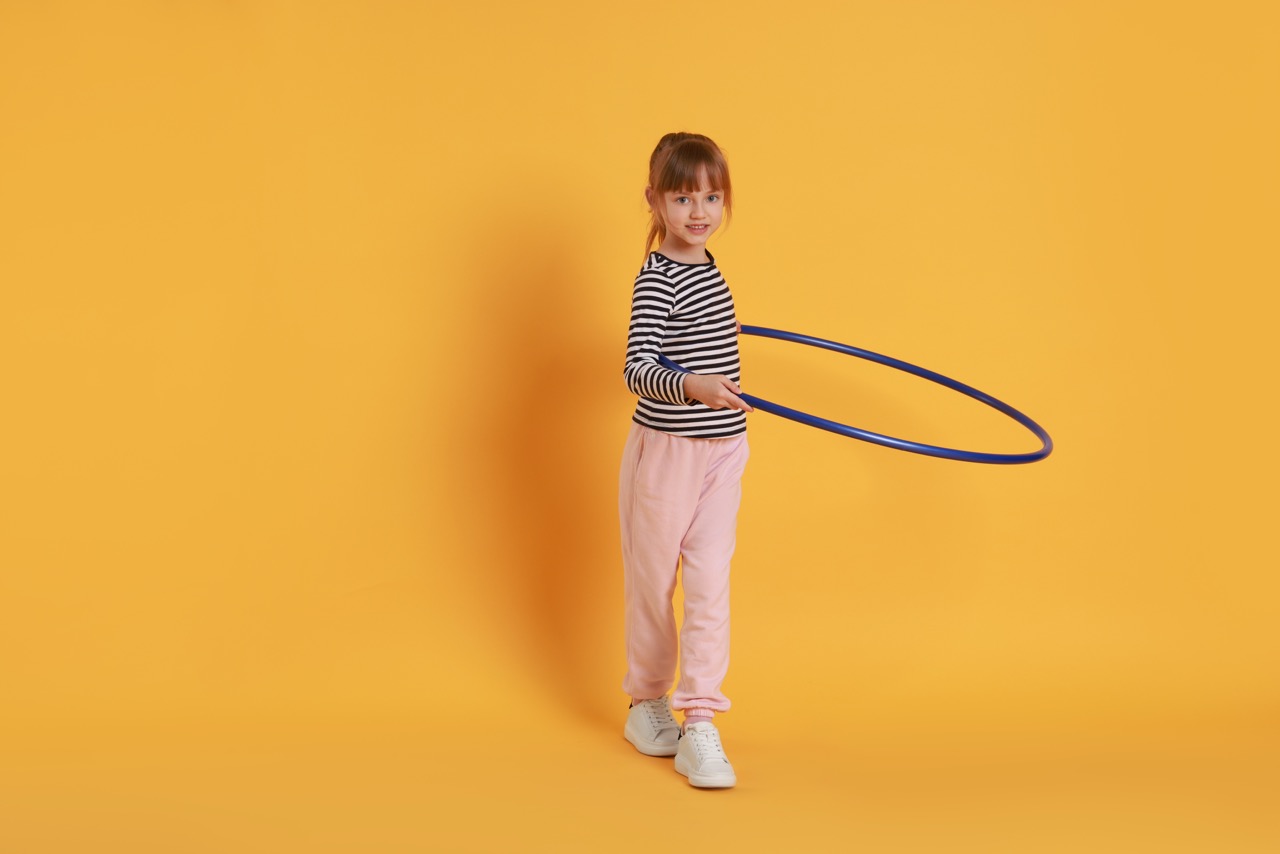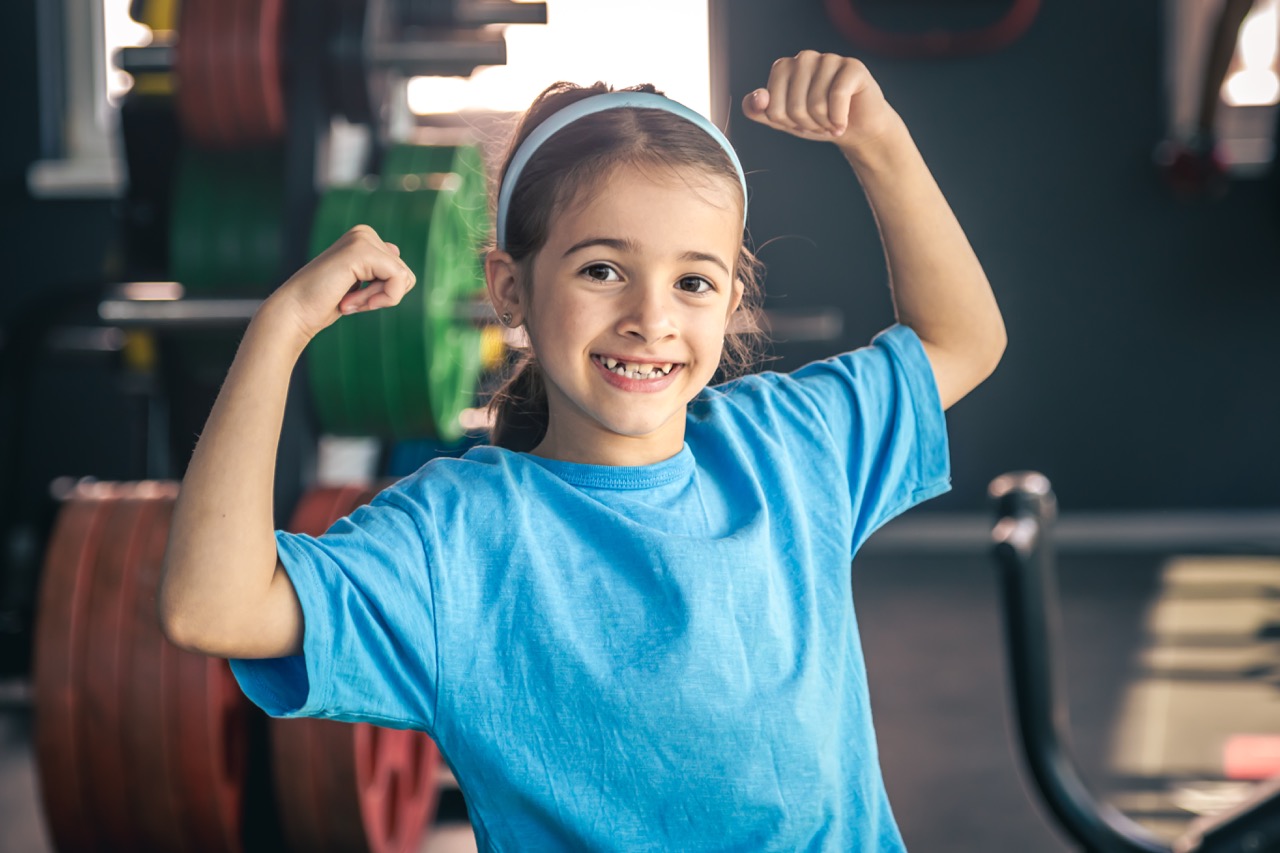
When it comes to the colder months, it’s tempting for both children and adults to opt for staying inside where it’s warm and cosy. The temperature drops and the daylight hours shrink, meaning screens become more appealing, motivation dips and outdoor play often slides down the priority list.
However, colder months don’t have to mean less movement. With the right approach, winter can actually be one of the most exciting times for kids to stay active, build resilience and develop a lifelong love of sport.
Consistent physical activity is key to children’s physical, mental and social development, no matter the season. Research shows that children who spend more time outside have high vitamin D levels, and higher levels are associated with better immune systems and stronger bones. More time outside is also beneficial for physical skills which improve the cardiovascular system, muscle strength, muscle control, coordination, dexterity and motor skills.
Think about it- as adults, we all feel the benefits of a walk in the fresh air and time in nature. This is seen in children too, with reported reduction in stress levels and anxiety seen in children who spend more time outside.
Here are some practical, realistic and family-friendly ways to encourage more outdoor play when the weather isn’t exactly inviting.
Reframe cold weather as an opportunity rather than a barrier
Kids take their cues from adults so if we treat winter as a problem, they will too. Instead, talk about the positive parts of the colder months: crisp air, fewer crowds and new activities they can’t do in summer. Highlighting the positives helps children see outdoor play as an adventure rather than a chore. A muddy field, frosty grass or light drizzle can quickly become part of the fun when it’s framed the right way.
Limit screen time
The most tempting thing to do when it’s cold outside is to pull out the iPad, and while they definitely have their time and place, screens can be a deterrent to getting outside. By placing a limit on the amount of screentime your child can have, it encourages them to find other methods of entertainment in other parts of the day- for example, getting outside.
Dress for comfort
One of the biggest reasons that kids resist going outside in winter is discomfort. The solution is simple (arguable) but crucial: the right clothing.
Layering is key for this. A breathable base layer, a warm mid-layer and a weather-resistant outer layer can make all the difference to how comfortable they are when playing outside. Add gloves, hats and warm socks, and suddenly the cold becomes manageable. When kids are warm and dry, they’re far more likely to enjoy themselves and stay outside longer.
You can even encourage them to help choose their own outdoor gear to boost excitement and confidence about wearing it.
Keep the activities short, varied and fun
In colder conditions, attention spans drop faster. Rather than forcing long sessions, aim for shorter bursts of activity that are high-energy and engaging. Try games, challenges and mini-competitions instead of drills that require standing still.
Rotating activities also helps. Mixing up skills, tag-style games, obstacle courses or team challenges keeps kids moving and warm while preventing boredom. And remember, the goal isn’t perfection in the skill, it’s more about participation and enjoyment.
During our winter sessions, we focus on movement-based learning that keeps players active from start to finish, even on the chilliest days.
Make outdoor play social
Kids are far more motivated when their friends are involved. Arrange playtimes, training sessions or fun games with friends. Knowing that others are braving the cold alongside them makes outdoor activity feel more exciting and less daunting.
Team sports are especially good during winter. They provide structure, routine and a sense of belonging at a time of year when energy levels can dip. Plus, regular sessions give kids something to look forward to, regardless of the weather. You can help by coordinating lifts and keeping the atmosphere positive and supportive on the sidelines.
Build outdoor play into your weekly routine
Consistency is one of the most effective motivators. When outdoor activity is part of the weekly routine, it becomes normal rather than optional. Set regular days for training, park visits or family walks and treat them like non-negotiable appointments. Routine also reduces resistance. Kids are less likely to argue about going outside when they know it’s simply ‘what we do on Saturday mornings.’
If your kids aren’t in the habit of outdoor play, here are a few tried and tested ideas to help:
Keep outdoor toys like bikes, scooters and helmets easily accessible for them to access independently
Get involved! Join them on a bike ride or challenge them to a game of tennis. Our children copy our actions, so be a role model and get stuck in!
Arrange play dates with and invite friends to join in
Make hot drinks in flasks to keep warm when playing outside
Get wrapped up and embrace the outside, whatever the weather- investing in some thermals and waterproofs will be sure to keep them happy in all weathers
Upgrade outdoor toys
At PTC Sports, we offer a host of after-school and holiday clubs to enrich your child’s physical well-being during the colder months. No matter the weather or ability, your children will enjoy themselves with our highly skilled and qualified coaches. We provide iconic multi-sports sessions for school holidays as well as after-school clubs when you need childcare or a new engaging activity.
Want to get involved yourself? Why not try our parent and child classes…

Our popular gift guide is back and better than ever!
Parents, we get it, December is the most challenging month. The never-ending to-do lists, nativity shows, shopping, ‘thank you’ gifts, the big food shop, the class WhatsApp popping off, and it seems no matter how much you think you’re keeping on top of it, there’s always more to add.
The good news is, we are here to make Christmas shopping easier this year with our tried and tested guide to our favourite toys and activities for 2025!
Like most parents, we are all trying to give presents that are actually useful, encourage open-ended play, sneakily develop skills and ultimately reduce the mountain of neon plastic toys cluttering and gathering dust in your living room. However, what we can’t do is stop the grandparents buying your kids another drum kit, or any other obnoxiously loud toy they insist on buying…
Memories Over Materials
Ask your kids what they got for Christmas last year. Chances are they remember very little, if anything… Disappointing right?
They might not remember what you bought them, but they will remember how you made them feel, and the best gifts are memories. Our favourite presents aren’t presents but are experiences; family time spent together that will be remembered.
Here are some of our top ideas for gift vouchers and experiences that cover a variety of prices for every budget. If the budget allows, you could even consider upgrading to an annual pass for the gift to enjoy all year long:
Ninja Warrior park
Theme parks
High ropes course
Gladiator experience
Cinema
Soft play
Ice skating
Theatre tickets
Indoor ski centres
Trampoline parks
Zoo passes
If you want to score top marks for creativity, give the 12 days of Christmas gift where you plan an experience or trip for each month of the year. On the first day of every month of the year, the kids open the gift to discover the surprise for that month. You could then take a photo, and at the end of the year, fill a frame with all the wonderful memories.
Ride-On Toys
Is it time to upgrade their bikes or scooters? Ride-on toys are always a win with the kids, and they provide a wealth of physical health benefits, whether it’s making the trip to school more fun or enjoying a family bike ride.
To make life easier, we recommend the fold-down scooters, which are easier to transport in boots or even through airports. Obviously, you will get bonus points from your little ones for the scooters with light-up wheels for the darker winter months.
Not sure where to start with bikes? The likes of Halfords offer expert advice and even sell second-hand bikes that have been expertly refurbished, making your money go further. Consider shopping on Facebook Marketplace to save money and support a more environmentally friendly shopping experience.
Roll On The Fun
Classics that never go out of date; roller skates, roller blades and the newer Heelys! Skating is a fantastic low-impact exercise which improves coordination and balance, and also provides hours of fun. We also love Heelys! They are a great investment for keeping kids entertained whilst shopping or when travelling- never a boring moment with Heelys!
Trampolines
The biggest eyesore for your garden, but the best investment for keeping your kids entertained for hours! Rebounding has been proven to be a highly efficient whole-body workout. A recent NASA study published research showing that 10 minutes of trampolining provides a better cardiovascular workout than 33 minutes of running. However, warning- side effects include very happy children and the whole street of kids piling into your back garden for a turn.
Give a ’90s Christmas
Our childhoods were great, filled with fun and innocent play. We weren’t glued to devices; we played in the garden, visited the local park, or spent time out front with neighbours until the street lights came on. Toys from our 90s-inspired favourites kept us entertained for hours:
Space Hoopper
Skipping rope
Pogo stick
Twister
Ankle skip balls
Hula Hoops
Moon shoes
Swing ball
Remember, kids don’t need millions of gifts under the tree because it’s not what’s under the tree, it’s who is around it. Children are happy spending quality time with you, so try not to fall victim to the pressures of social media. A few well-chosen gifts, as we’ve suggested, will last a long time and keep them entertained and active for ages.
We wish you all a happy and healthy Christmas, and look forward to an active new year!

HYROX is spreading like wildfire across the UK. From packed social media feeds to HYROX-only gyms and even clothing lines, it’s clear 2025 is the year we’ve all got hooked! Here at PTC Sports, we’re thrilled to see the positive impact HYROX is having on adults across the country, and we’re excited to weave functional fitness into our sessions to inspire children too. In this blog, we’ll explain what HYROX is and the benefits of functional fitness for young learners.
What is HYROX?
The term HYROX is a portmanteau of “hybrid” and “rockstar.” The “hybrid” part represents the fusion of different exercises, with running sets broken up by functional strength workouts. The “rockstar” comes from its previous name, Curox, where “rox” was meant to signify that every finisher is a rockstar for their achievement.
The adult events or classes follow a simple pattern: 1km running, followed by a functional workout station — for example, sledge pulls, ski machine, or burpees — repeated eight times. The format is the same worldwide and is designed to be accessible to everyone, from professional athletes to everyday people like you and me. Hyrox has sparked interest nationally as it combines the rare combination of being both exciting and inclusive.
How PTC Sports Brings HYROX to Schools
HYROX and CrossFit aren’t just for adults. This engaging, simple style of functional fitness can easily be adapted for children, making movement fun, practical, and captivating. At PTC Sports, our qualified and skilled coaches combine joy, fun and real-world fitness in every session, demonstrating that exercise isn’t always about balls and bats — it’s about enjoyment and both physical and mental skills that transfer beyond the playground.
Our functional fitness activities for kids focus on movements they use every day, like squatting, jumping, running, and carrying. Every child can participate, regardless of ability levels — no heavy weights are needed, just bodyweight.
Functional fitness has gained popularity due to its wide range of benefits, which include but are not limited to strength, agility, coordination, balance, problem-solving, endurance, cardiovascular fitness, stamina and resilience. Through carefully designed, fun-based activities, we can focus on every muscle group. Research shows this approach is both safe and effective for developing both children’s physical skills and fostering a lifelong passion for exercise.
Mini HYROX in Action
The HYROX style of functional fitness adapts easily to schools. Short bursts of varied activities keep students fully engaged. Here’s how we structure our sessions:
Mini Circuits – Classes where each movement has a focus, such as pull, jump, squat, or balance. This might include stations of burpees, bear crawls, shuttle runs, lunges, or basketball shots — all timed for maximum engagement.
Team Relay Challenge – Children work in pairs, taking turns to complete each movement and tag their teammate. These sessions support numeracy, teamwork, and sportsmanship. Examples include:
10 squats → tag teammate
10 hoop jumps → tag teammate
10 frog jumps → tag teammate
Other favourites include:
Fitness Bingo: Bingo, but make it fitness! Each square, instead of a number, represents an exercise to complete to tick the box.
Animal Antics: Children must use their imagination to sprint like a cheetah, hop like a bunny, or bounce like a kangaroo.
Coach Says: A fitness twist on the classic Simon Says.
The Floor Is Lava: Children must navigate to safety, using squats, crawls, and jumps without touching the floor to avoid the lava.
Enhance your School with Functional Fitness
Looking to enhance your school’s functional fitness provision? Look no further! PTC Sports works with schools across the country, delivering outstanding coaching services — from PE lessons to extracurricular activities, staff enrichment, training, and beyond. Contact us today to see how we can bring fun, functional fitness to your students!